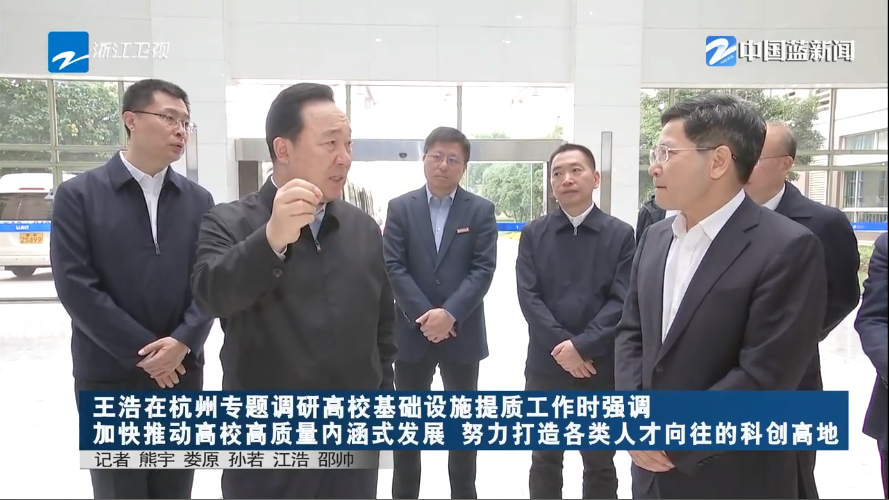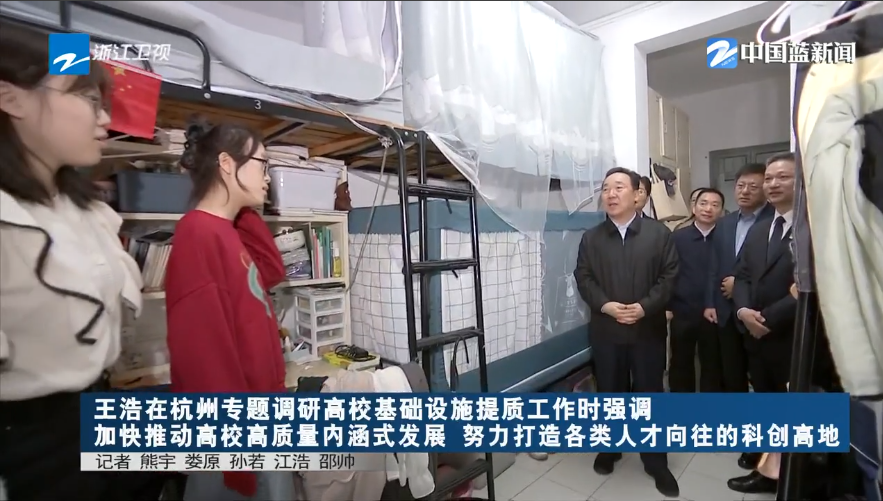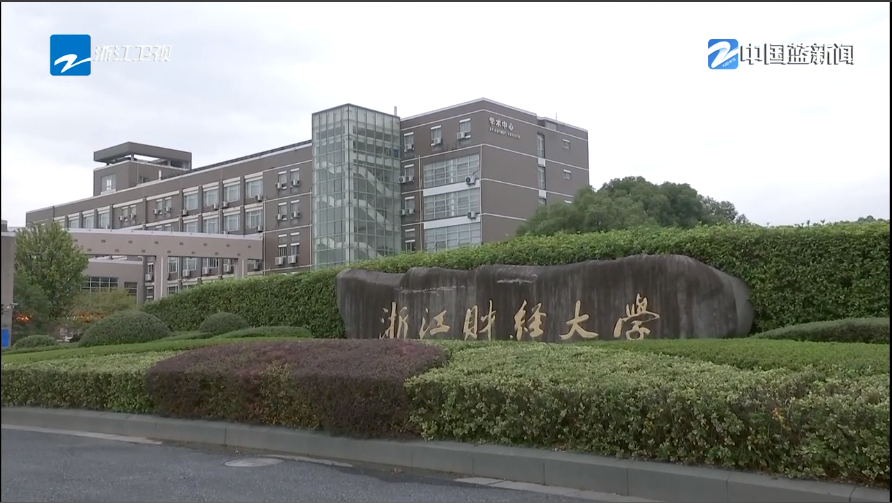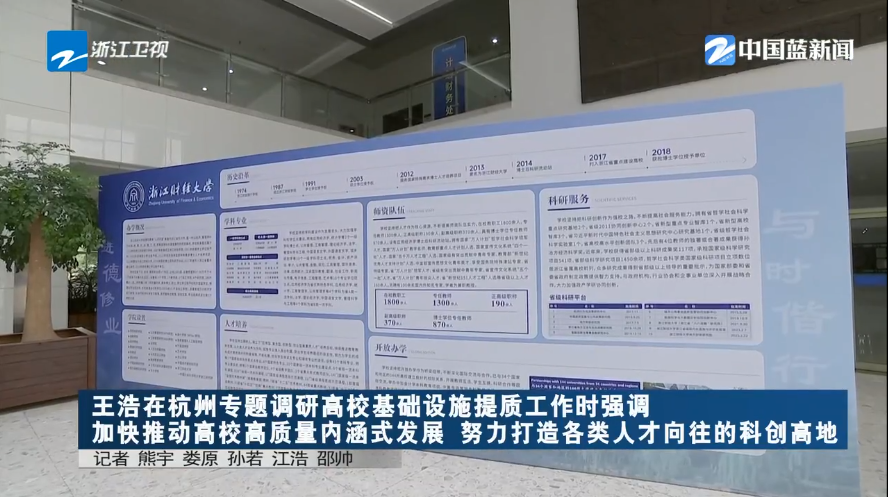On the morning of November 9, Wang Hao, Deputy Secretary of the Provincial Party Committee and Governor, conducted a focused investigation on the improvement of infrastructure quality at the university. Lu Shan, Vice Governor, and Yao Gaoyuan, Hangzhou Mayor participated in the investigation, which was attended by Li Jinchang, Secretary of ZUFE's Party Committee, and Wei Jiang, Deputy Secretary of ZUFE's Party Committee and Vice President of ZUFE, who presides over administrative work.
Wang Hao and his delegation went to the student living area of the university and had a cordial interaction with the students. They inspected the facilities of student apartment buildings and listened to Li Jinchang’s report on the university's construction and development, as well as the infrastructure construction of the Xiasha Campus.



Wang Hao highlighted General Secretary Xi Jinping's key speeches during his visit to Zhejiang and emphasized the spirit behind his significant discourse on higher education. Firmly dedicated to fulfilling this essential mission, he advocated for an integrated approach addressing problems in developing education that meets public expectations across the province. Furthermore, he called for a scientific planning process and rational allocation of resources aimed at enhancing the infrastructure and operational conditions of higher education institutions comprehensively.
He urged swift progress towards high-quality development within colleges and universities to transform Zhejiang into an innovation hub and talent magnet, providing robust support for a new chapter in China's modernization story. Wang applauded ZUFE for its remarkable evolution from a secondary specialized school to a provincial key construction university in just 49 years. He expressed his hope that the university will focus on its development goals, strengthen its unique capabilities in economics and management, advance the New Finance and Economics Strategy, and provide strong intellectual support for Zhejiang's economic and social growth—thus contributing to the province's burgeoning higher education sector.


Wang Hao highlighted that General Secretary Xi had attached great importance to higher education during his tenure in Zhejiang from October 2002 to March 2007, incorporated strategies of invigorating the province through science and education and strengthening the province through human resource development into the "Double-Eight Strategy", and made a series of pioneering and visionary decisions and deployments. During his latest inspection in Zhejiang (September 20-21, 2023), Xi proposed that Zhejiang should be at the forefront of shaping new advantages for development through technological innovation. In response, Wang emphasized that the Provincial Party Committee and the Provincial Government have deeply studied and implemented General Secretary Xi's important instructions on invigorating the province through science and education as well as human resource development. Specifically, they have formulated and issued the Opinions of the People's Government of Zhejiang Province on Promoting the Construction of High-Level Universities and Several Opinions on Accelerating the High-Quality Development of General Colleges and Universities. At the same time, a series of supporting documents have been developed, all aimed at helping the high-quality development of colleges and universities with extraordinary efforts. Wang Hao noted that at present, infrastructure is a significant bottleneck hindering the high-quality development of higher institutions in our province. He emphasized the necessity of combining focused and holistic approaches with both short-term and long-term planning to formulate a top-level plan for the high-quality development of universities and colleges across the province. He also underlined that this plan should serve as a cohesive strategy, clarifying the development positioning, scale, and direction of each institution, and providing a scientific basis for the "one university, one policy" approach to advancing infrastructure construction.
Besides, Wang accentuated the significance of maintaining a balanced and integrated approach and implementing measures in a phased manner. In the near term, the focus should be on initiating maintenance and renovation of university infrastructure with safety hazards, striving to start and complete projects as soon as possible. For the medium to long term, it is essential to plan and carry out a batch of quality improvement and new construction projects for university infrastructure, fundamentally addressing the underlying issues. In addition, Wang highlighted that Hangzhou city and its surrounding counties and cities must fulfill their local responsibilities by strengthening resource coordination and ensuring support for key elements. Furthermore, he indicated that universities and colleges, as the main entities responsible for the construction of infrastructure, should urgently develop specific work plans, clarify tasks, and map out operations to advance project construction with high standards and quality, ensuring that faculty and students have a tangible sense of gain.
The video link for Zhejiang TV is attached as follows:
http://www.cztv.com/videos/zjxwlb/4406360.html?bsh_bid=5973582012
